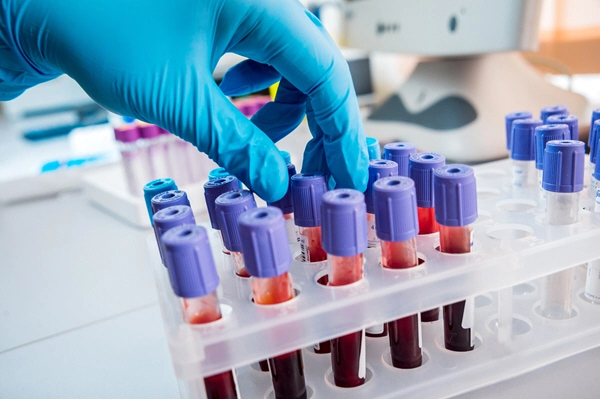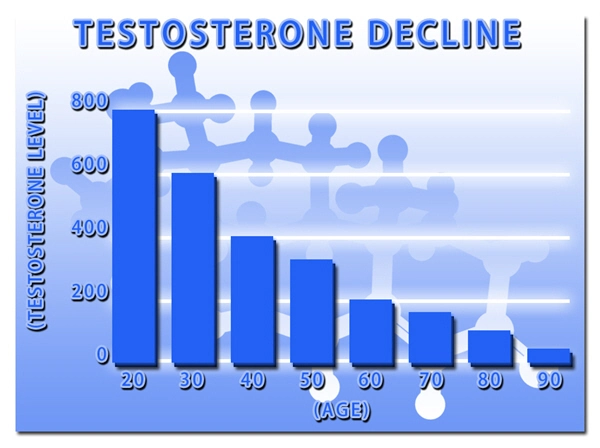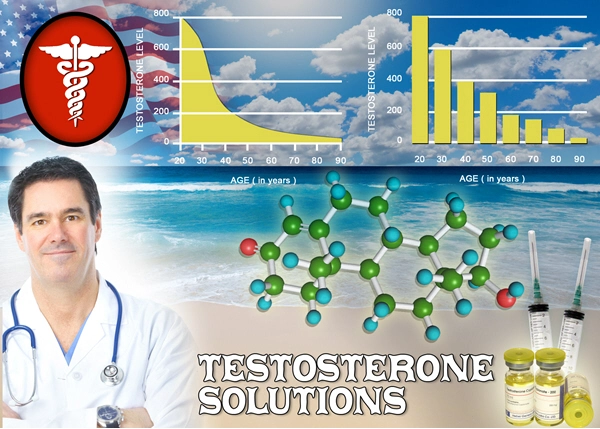Introduction
Type 2 diabetes mellitus (T2DM) represents a significant health challenge in the United States, particularly among the male population. The prevalence of T2DM has been steadily increasing, prompting the need for innovative therapeutic strategies. Recent research has begun to explore the potential benefits of testosterone replacement therapy (TRT) in managing T2DM among American males. This article delves into a prospective cohort study that investigates the role of TRT in improving glycemic control and overall health outcomes in this demographic.
Background and Rationale
Testosterone, a key male sex hormone, plays a crucial role in various physiological processes, including glucose metabolism. Hypogonadism, characterized by low testosterone levels, is frequently observed in men with T2DM and may contribute to insulin resistance and poor glycemic control. TRT has been hypothesized to improve insulin sensitivity and glycemic control, thus offering a novel approach to managing T2DM.
Study Design and Methodology
The prospective cohort study involved 500 American males aged 40 to 70 years with T2DM and confirmed hypogonadism. Participants were divided into two groups: one receiving TRT and the other serving as a control group. The TRT group received intramuscular injections of testosterone enanthate every two weeks, while the control group received standard diabetic care without testosterone supplementation. The study duration was 12 months, with regular monitoring of glycemic indices, lipid profiles, and testosterone levels.
Results and Findings
After 12 months, the TRT group exhibited significant improvements in glycemic control compared to the control group. The mean HbA1c levels decreased from 8.2% to 7.1% in the TRT group, whereas the control group showed a modest reduction from 8.1% to 7.8%. Additionally, the TRT group demonstrated enhanced insulin sensitivity, as evidenced by a reduction in fasting insulin levels and an improved HOMA-IR index.
Beyond glycemic control, TRT also positively impacted other metabolic parameters. The TRT group experienced favorable changes in lipid profiles, with significant reductions in total cholesterol and triglycerides. Furthermore, participants reported improved energy levels and quality of life, underscoring the multifaceted benefits of TRT in managing T2DM.
Discussion and Implications
The findings of this study suggest that TRT can be a valuable adjunct therapy for American males with T2DM and hypogonadism. By improving insulin sensitivity and glycemic control, TRT may help mitigate the risk of diabetic complications and enhance overall health outcomes. These results align with previous research indicating the metabolic benefits of testosterone in men with T2DM.
However, it is essential to consider the potential risks associated with TRT, such as erythrocytosis and cardiovascular events. Therefore, TRT should be administered under careful medical supervision, with regular monitoring of hematocrit levels and cardiovascular risk factors.
Future Directions and Recommendations
Further research is warranted to elucidate the long-term effects of TRT on T2DM management and to identify the optimal dosing and duration of therapy. Additionally, studies should explore the potential benefits of TRT in diverse populations, including different ethnic groups and age cohorts.
Healthcare providers should consider TRT as a potential therapeutic option for American males with T2DM and hypogonadism, particularly those who struggle to achieve adequate glycemic control with conventional treatments. Collaborative efforts between endocrinologists and primary care physicians are crucial to ensure the safe and effective implementation of TRT in clinical practice.
Conclusion
In conclusion, the prospective cohort study highlights the promising role of testosterone replacement therapy in managing type 2 diabetes among American males. By improving glycemic control and metabolic parameters, TRT offers a novel approach to enhancing the health outcomes of men with T2DM and hypogonadism. As research continues to evolve, TRT may become an integral component of comprehensive diabetes management strategies, ultimately improving the quality of life for affected individuals.

- TRT and Mental Health: Benefits, Risks, and Holistic Approaches for American Men [Last Updated On: March 2nd, 2025] [Originally Added On: March 2nd, 2025]
- Economic Impact of Testosterone Replacement Therapy in U.S. Healthcare [Last Updated On: March 16th, 2025] [Originally Added On: March 16th, 2025]
- Navigating Testosterone Replacement Therapy: Benefits, Insurance, and Methods for American Males [Last Updated On: March 17th, 2025] [Originally Added On: March 17th, 2025]
- American Men's Journey with Testosterone Replacement Therapy: Experiences and Insights [Last Updated On: March 17th, 2025] [Originally Added On: March 17th, 2025]
- Testosterone Replacement Therapy: Benefits, Risks, and Holistic Management for Young Men [Last Updated On: March 18th, 2025] [Originally Added On: March 18th, 2025]
- Optimizing TRT for American Men: Diet, Exercise, and Holistic Health Strategies [Last Updated On: March 19th, 2025] [Originally Added On: March 19th, 2025]
- Testosterone Replacement Therapy: Enhancing Male Health and Vitality in American Men [Last Updated On: March 19th, 2025] [Originally Added On: March 19th, 2025]
- TRT: Enhancing Bone Health in American Males with Hypogonadism [Last Updated On: March 19th, 2025] [Originally Added On: March 19th, 2025]
- Testosterone Replacement Therapy: Advances, Personalization, and Future in U.S. Men's Health [Last Updated On: March 20th, 2025] [Originally Added On: March 20th, 2025]
- Enhancing TRT: Nutrition, Exercise, Stress Management, and Holistic Health for American Men [Last Updated On: March 20th, 2025] [Originally Added On: March 20th, 2025]
- TRT Benefits and Prostate Health: Navigating Risks and Monitoring Strategies [Last Updated On: March 20th, 2025] [Originally Added On: March 20th, 2025]
- TRT Enhances Sleep Quality in American Males: Benefits, Mechanisms, and Considerations [Last Updated On: March 21st, 2025] [Originally Added On: March 21st, 2025]
- Testosterone Replacement Therapy: Dosage, Administration, and Monitoring for American Males [Last Updated On: March 22nd, 2025] [Originally Added On: March 22nd, 2025]
- TRT's Impact on Cardiovascular Health in American Men: Risks and Benefits [Last Updated On: March 22nd, 2025] [Originally Added On: March 22nd, 2025]
- Testosterone Replacement Therapy: Benefits, Risks, and Latest Research for American Men [Last Updated On: March 23rd, 2025] [Originally Added On: March 23rd, 2025]
- Cultural Attitudes Toward Testosterone Replacement Therapy Among American Men [Last Updated On: March 23rd, 2025] [Originally Added On: March 23rd, 2025]
- TRT: Enhancing Cognitive Function and Mental Clarity in American Men [Last Updated On: March 23rd, 2025] [Originally Added On: March 23rd, 2025]
- TRT: A Comprehensive Approach to Weight Management in American Males [Last Updated On: March 23rd, 2025] [Originally Added On: March 23rd, 2025]
- Testosterone Replacement Therapy: Benefits, Risks, and Managing Expectations for American Men [Last Updated On: March 24th, 2025] [Originally Added On: March 24th, 2025]
- TRT's Potential to Enhance Mood in American Males: A Comprehensive Overview [Last Updated On: March 24th, 2025] [Originally Added On: March 24th, 2025]
- TRT: A Promising Solution for Joint Health in American Males [Last Updated On: March 24th, 2025] [Originally Added On: March 24th, 2025]
- Hypogonadism in American Males: Understanding TRT Benefits and Risks [Last Updated On: March 24th, 2025] [Originally Added On: March 24th, 2025]
- Managing Testosterone Therapy Side Effects: Strategies for American Males [Last Updated On: March 25th, 2025] [Originally Added On: March 25th, 2025]
- TRT: Enhancing Cognitive Function in American Men - Benefits and Considerations [Last Updated On: March 25th, 2025] [Originally Added On: March 25th, 2025]
- Testosterone Replacement Therapy: Combating Fatigue in American Men [Last Updated On: March 25th, 2025] [Originally Added On: March 25th, 2025]
- Testosterone Replacement Therapy: A Promising Approach to Managing Chronic Pain in Men [Last Updated On: March 25th, 2025] [Originally Added On: March 25th, 2025]
- TRT and Hair Loss: Understanding Risks and Management Strategies for American Men [Last Updated On: March 25th, 2025] [Originally Added On: March 25th, 2025]
- TRT's Impact on Vision: Benefits, Risks, and Research for American Males [Last Updated On: March 25th, 2025] [Originally Added On: March 25th, 2025]
- Testosterone Replacement Therapy: A Promising Approach to Combat Depression in American Males [Last Updated On: March 26th, 2025] [Originally Added On: March 26th, 2025]
- Low Libido in American Males: Understanding and Managing with TRT [Last Updated On: March 26th, 2025] [Originally Added On: March 26th, 2025]
- TRT Benefits for American Males: Enhancing Skin Health and Vitality [Last Updated On: March 26th, 2025] [Originally Added On: March 26th, 2025]
- Testosterone Replacement Therapy: Enhancing Muscle Mass in American Men [Last Updated On: March 26th, 2025] [Originally Added On: March 26th, 2025]
- TRT: Understanding Its Impact on Fertility and Alternatives for American Men [Last Updated On: March 26th, 2025] [Originally Added On: March 26th, 2025]
- TRT's Impact on Immune Function in American Men: A Comprehensive Overview [Last Updated On: March 26th, 2025] [Originally Added On: March 26th, 2025]
- Exploring Testosterone Replacement Therapy: Benefits, Risks, and Considerations for Aging Males [Last Updated On: March 26th, 2025] [Originally Added On: March 26th, 2025]
- Choosing the Right Clinic for Testosterone Replacement Therapy: A Comprehensive Guide [Last Updated On: March 26th, 2025] [Originally Added On: March 26th, 2025]
- TRT: Enhancing Respiratory Health in American Men with Hypogonadism [Last Updated On: March 27th, 2025] [Originally Added On: March 27th, 2025]
- TRT's Impact on Liver Health: Risks and Monitoring for American Men [Last Updated On: March 27th, 2025] [Originally Added On: March 27th, 2025]
- TRT Enhances Injury Recovery in American Males: Benefits and Risks [Last Updated On: March 27th, 2025] [Originally Added On: March 27th, 2025]
- Testosterone Replacement Therapy: Monitoring, Adjustments, and Lifestyle for Optimal Health [Last Updated On: March 27th, 2025] [Originally Added On: March 27th, 2025]
- TRT's Impact on Digestive Health: Benefits, Risks, and Considerations for American Men [Last Updated On: March 27th, 2025] [Originally Added On: March 27th, 2025]
- TRT and Diabetes in American Men: Benefits, Risks, and Lifestyle Integration [Last Updated On: March 27th, 2025] [Originally Added On: March 27th, 2025]
- Testosterone Replacement Therapy: Costs, Benefits, and Considerations for American Men [Last Updated On: March 27th, 2025] [Originally Added On: March 27th, 2025]
- Testosterone Replacement Therapy: Enhancing Life with Lifestyle Changes for American Males [Last Updated On: March 27th, 2025] [Originally Added On: March 27th, 2025]
- TRT: Enhancing Stamina and Vitality in American Males with Hypogonadism [Last Updated On: March 28th, 2025] [Originally Added On: March 28th, 2025]
- TRT: Enhancing Emotional Well-being in American Men with Hypogonadism [Last Updated On: March 28th, 2025] [Originally Added On: March 28th, 2025]
- Testosterone Replacement Therapy: Benefits, Risks, and Methods for American Men [Last Updated On: March 28th, 2025] [Originally Added On: March 28th, 2025]
- TRT: A Promising Solution for Stress Management in American Males [Last Updated On: March 29th, 2025] [Originally Added On: March 29th, 2025]
- TRT Side Effects: Acne, Fertility Impact, Cardiovascular Risks, and More [Last Updated On: March 30th, 2025] [Originally Added On: March 30th, 2025]
- Testosterone Replacement Therapy: Boosting Confidence and Quality of Life in American Males [Last Updated On: March 30th, 2025] [Originally Added On: March 30th, 2025]
- TRT and Blood Pressure: Monitoring and Managing Cardiovascular Health in American Men [Last Updated On: March 30th, 2025] [Originally Added On: March 30th, 2025]
- TRT's Impact on Kidney Function: Risks, Benefits, and Monitoring for American Males [Last Updated On: March 30th, 2025] [Originally Added On: March 30th, 2025]
- TRT's Impact on Cholesterol Levels in American Males: Monitoring and Management Strategies [Last Updated On: March 31st, 2025] [Originally Added On: March 31st, 2025]
- Testosterone Replacement Therapy: Benefits, Risks, and Optimization for American Males [Last Updated On: March 31st, 2025] [Originally Added On: March 31st, 2025]
- TRT's Impact on Blood Sugar: Insights for American Men [Last Updated On: April 1st, 2025] [Originally Added On: April 1st, 2025]
- TRT's Impact on Thyroid Function in American Men: A Comprehensive Analysis [Last Updated On: April 5th, 2025] [Originally Added On: April 5th, 2025]
- TRT: Enhancing Athletic Performance in American Males - Benefits and Risks [Last Updated On: April 8th, 2025] [Originally Added On: April 8th, 2025]
- Testosterone Replacement Therapy: Benefits, Allergic Risks, and Management Strategies [Last Updated On: April 8th, 2025] [Originally Added On: April 8th, 2025]
- Maximizing TRT Benefits: Integrating Therapy with Lifestyle and Medical Treatments for American Males [Last Updated On: April 9th, 2025] [Originally Added On: April 9th, 2025]
- TRT's Impact on Male Fertility: Risks, Reversibility, and Alternatives [Last Updated On: April 9th, 2025] [Originally Added On: April 9th, 2025]
- TRT's Impact on Hearing Health: Insights and Considerations for American Males [Last Updated On: April 9th, 2025] [Originally Added On: April 9th, 2025]
- Testosterone Replacement Therapy: Understanding and Interpreting Lab Results for Optimal Treatment [Last Updated On: April 10th, 2025] [Originally Added On: April 10th, 2025]
- TRT's Impact on Dental Health: Risks, Benefits, and Care Strategies for American Men [Last Updated On: April 10th, 2025] [Originally Added On: April 10th, 2025]
- TRT's Impact on Nail Health: Benefits and Challenges for American Men [Last Updated On: April 11th, 2025] [Originally Added On: April 11th, 2025]
- TRT: Enhancing Eye Health in American Men Through Hormone Therapy [Last Updated On: April 12th, 2025] [Originally Added On: April 12th, 2025]
- Traveling with TRT: A Comprehensive Guide for American Men [Last Updated On: April 12th, 2025] [Originally Added On: April 12th, 2025]
- TRT's Impact on Social Life: Boosting Confidence and Engagement in American Males [Last Updated On: April 13th, 2025] [Originally Added On: April 13th, 2025]
- Legal Aspects of Testosterone Replacement Therapy for American Males: A Comprehensive Guide [Last Updated On: April 15th, 2025] [Originally Added On: April 15th, 2025]
- TRT's Impact on Hand Health: Benefits and Risks for American Men [Last Updated On: April 15th, 2025] [Originally Added On: April 15th, 2025]
- Testosterone Replacement Therapy: Benefits and Social Implications for American Males [Last Updated On: April 16th, 2025] [Originally Added On: April 16th, 2025]
- Exploring the Psychological Impacts of Testosterone Replacement Therapy for American Men [Last Updated On: April 17th, 2025] [Originally Added On: April 17th, 2025]
- TRT: Boosting Work Performance and Vitality in American Males [Last Updated On: April 17th, 2025] [Originally Added On: April 17th, 2025]
- TRT's Impact on Artistic Expression in American Males: Creativity and Risks [Last Updated On: April 17th, 2025] [Originally Added On: April 17th, 2025]
- TRT's Impact on Neck Health: Considerations for American Men [Last Updated On: April 17th, 2025] [Originally Added On: April 17th, 2025]
- Ethical Considerations in Testosterone Replacement Therapy for American Men [Last Updated On: April 18th, 2025] [Originally Added On: April 18th, 2025]
- TRT's Impact on Chest Health: Benefits, Risks, and Management in American Men [Last Updated On: April 19th, 2025] [Originally Added On: April 19th, 2025]
- TRT Benefits for American Males: Enhancing Foot Health and Mobility [Last Updated On: April 19th, 2025] [Originally Added On: April 19th, 2025]
- TRT's Impact on Back Health in American Males: Benefits and Considerations [Last Updated On: April 20th, 2025] [Originally Added On: April 20th, 2025]
- Testosterone Replacement Therapy: Benefits, Risks, and the Need for Medical Supervision in the U.S. [Last Updated On: April 21st, 2025] [Originally Added On: April 21st, 2025]
- TRT: Enhancing Abdominal Health and Reducing Fat in American Men [Last Updated On: April 21st, 2025] [Originally Added On: April 21st, 2025]



List of USA state clinics - click a flag below for blood testing clinics.
Word Count: 603



















































